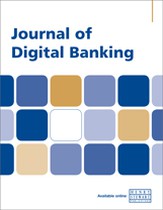Regulatory obstacles to organised trading in security tokens
Abstract
The success story of the crypto-economy is undeniable. Crypto has gradually been making headway into the traditional financial sector. Acceptance of and demand for distributed ledger technologies (DLT)-based securities are on the rise. ‘Initial token offerings’ (ITOs) or ‘security token offerings’ (STOs) are on the verge of entering the mainstream — especially in the realm of small and medium enterprise (SME) financing. The borderline between the traditional financial markets and the crypto-economy is starting to blur. The players in the financial markets, however, are not the only ones beginning to realise the potential of Blockchain, and, more generally, DLT. The public sector is also slowly waking up. Recent developments include new legislation in Liechtenstein, France and Germany, as well as various initiatives in other member states. Amid all this enthusiasm and optimism, there is one issue that undeniably still dampens the mood: current EU financial markets law poses significant, and in some cases insurmountable, obstacles to the integration of DLT-based assets into the traditional financial system. In this paper, we analyse what currently appears to be the most pressing of these issues. These are the strict and inflexible rules of the Markets in Financial Instruments Directive/Markets in Financial Instruments Regulation (MiFID1/MiFIR2) regimes and the Central Securities Depositories Regulation (CSDR) in the area of post-trade securities settlement that do not do justice to the characteristics of DLT and that at present almost completely prohibit any organised trading in DLT-based securities.
The full article is available to subscribers to the journal.
Author's Biography
Stefan Tomanek is a legal expert in the Department for Prudential Supervision Asset Management, Prospectus, Consumer Information, at the Austrian Financial Market Authority (FMA). While the supervision of undertakings for collective investments in transferable securities (UCITS) and alternative investment funds (AIFs) is the main focus of his work, he is also heavily involved in the area of crypto assets and related business models. In this context, he is also a delegate in international committees as well as The European Securities and Markets Authority (ESMA) committees. Prior to his work at the FMA, he gained valuable experience in the Legal & Compliance Department of a large Austrian bank. He holds a master’s degree in law from the University of Vienna.
Florian Pekler is a supervisor at the Austrian Financial Market Authority in the area of securities supervision. He is responsible for the supervision of Austrian and European Economic Area (EEA) investment firms. His expertise relates to innovations in the securities services sector, specifically crypto-assets, Blockchain and distributed ledger technology. He is working towards a degree in law at the University of Vienna.
Ralph Rirsch is a supervisor at the Austrian FMA in the Department for Integrated Conduct Supervision of Banks. He is specialised in the PRIIPs Regulation (on key information documents for packaged retail and insurance-based investment products) and new technologies. Before his time at the FMA, he worked as a consultant in the Austrian banking sector with a focus on regulatory issues (eg markets in financial instruments directive (MiFID II), payment services directive (PSD2)), large-scale IT implementations and database management. Additionally, he was active as a freelance systemic consultant for small and medium enterprises specialised in group dynamics. His academic background is in law (University of Vienna) and international business administration (Vienna University of Economics and Business).
